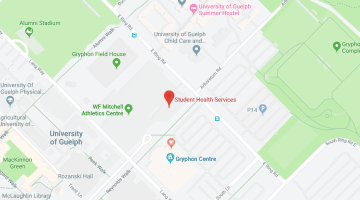
What is rotator cuff tendonitis?
The rotator cuff is composed of four different muscles: 1) subscapularis; 2) supraspinatus; 3) infraspinatus; 4) teres minor. These muscles all originate from the shoulder blade and attach onto the upper arm bone, forming a 'cuff' that surrounds the ball-and-socket joint. The shoulder joint is much like a golf ball sitting on a tee, this allows for a lot of movement, but also means that the join is not very stable. The rotator cuff muscles help to stabilize the joint and keep the ball centred in the socket throughout movement.
The tendons of these muscles can become inflamed (‘tendonitis’) and start to cause a lot of pain in the shoulder joint. In some individuals, only one rotator cuff tendon is inflamed, while in others, it may be more than one that is irritated. Most often we see that the supraspinatus and the subscapularis tendons are affected, but any of the four may be involved in the condition.
How did I get rotator cuff tendonitis?
This is a condition that usually develops over time. It is most often associated with activities that involve a lot of repetitive, overhead movements. These activities could be work- or sport-related. It can often affect athletes such as swimmers, pitchers, or quarterbacks. Posture most often plays a role in the progression of tendonitis as it can lead to impingement in the shoulder (refer to our impingement blog for more details) and irritation of the rotator cuff tendons. Age will also affect the development and progression of rotator cuff tendonitis. After 40 years of age, we naturally start to get breakdown of the tissues in the tendons which can predispose them to injury/inflammation, therefore making them more prone to developing tendonitis.
While overhead activities, posture, and age tend to be the most common causes of tendonitis, it is possible that it may develop secondary to another injury, from keeping the shoulder in one position for a long period of time, sleeping position, or trauma.
Symptoms of rotator cuff tendonitis
Symptoms of this condition include, but are not limited to:
- Pain with raising the arm overhead (e.g. difficulties doing your hair, putting things away in a cupboard)
- Pain with reaching across your body
- Pain with reaching behind your back (e.g. fastening a bra, tucking in a shirt, passing a belt through belt loops)
- Difficulties sleeping/pain wakes you up in the night
- Stiffness in the joint
- Decreased mobility and strength in the arm
- Pain may radiate down the arm towards the elbow
- Pain with lifting/pulling
How is rotator cuff tendonitis diagnosed?
A physiotherapist will first ask you questions about your shoulder pain to get a clearer picture of how it started and to develop a hypothesis of what may be causing the pain. They will then observe your shoulder range of motion, the quality of your motion, your strength, and your posture. There are also several special tests that can be performed to help bias certain muscles in an attempt to determine which ones may be causing the pain. Based on the findings of this assessment, the physiotherapist can work with you to develop an appropriate treatment plan to help settle your symptoms and strengthen any deficiencies.
Ultrasounds or MRI’s can also be used to diagnose rotator cuff tendonitis. These need to be ordered by your doctor. It is not necessary to have these images prior to starting physiotherapy. Oftentimes there is a long wait to get an appointment for either an ultrasound or MRI and it is better to start physiotherapy sessions sooner rather than later.
Treatment for rotator cuff tendonitis
Physiotherapy has been shown to be very effective in the management of rotator cuff tendonitis. There are many things that can be done to help manage the pain including therapeutic ultrasound, IFC/TENS, acupuncture, and taping of the shoulder to help support it and maintain posture. The treatment plan that you design with your therapist will also include manual therapy techniques to help improve range of motion, and a progressive home exercise program that is tailored to your specific findings. Whether you’re an athlete, student, office worker, or manufacturing worker, we can help settle your pain, improve your mobility and strength, and get you back to your daily and/or sporting activities.
If you have been recently diagnosed with, or may suspect that you have rotator cuff tendonitis, give one of our clinics a call and book an appointment with one of our many qualified therapists.
RETURN TO THE PHYSIOTHERAPY HOMEPAGE [2]
